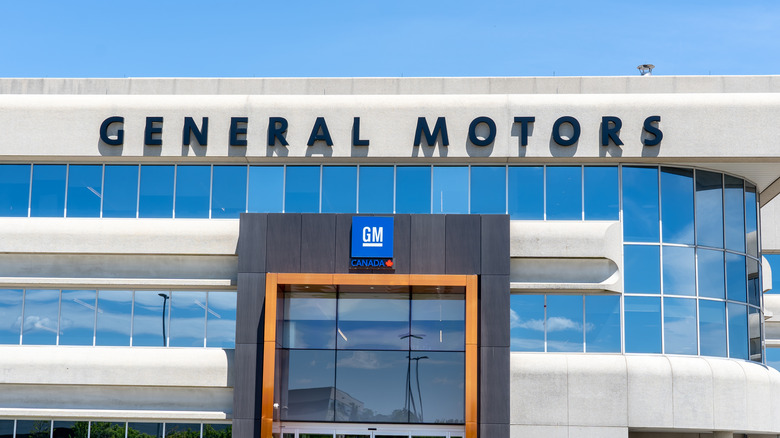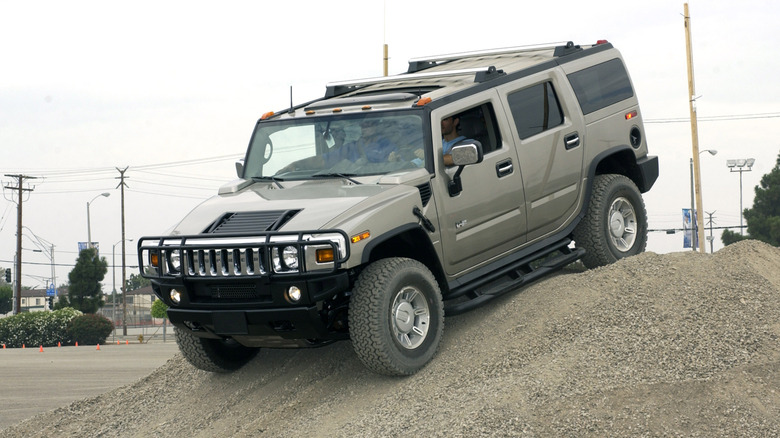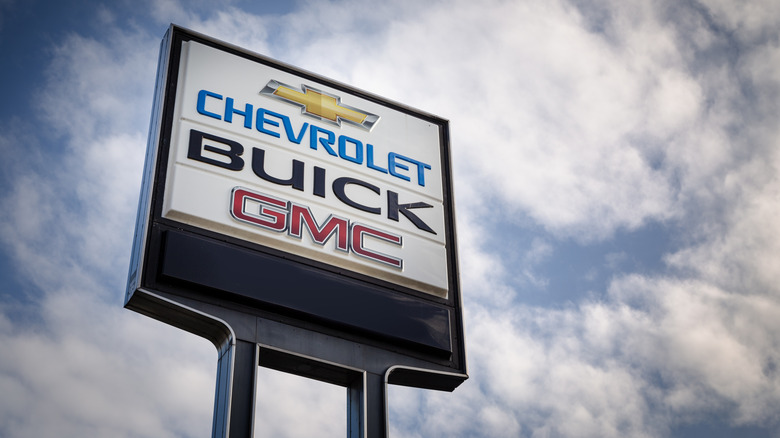How Many Car Brands Has GM Discontinued Over The Years?
General Motors has long established its name in the auto world, and yet many people only recognize it for its major brands, Chevrolet, GMC, Cadillac, and Buick. Looking at its 117-year history, however, it's hard not to notice how much the giant manufacturer tried to accommodate all segments, even at the expense of creating brands that would compete against its existing offerings. Since its rebirth and official rebranding as General Motors in 1908, GM has operated 43 brands, though not at the same time.
As of 2025, GM has discontinued at least 37 of its brands, but not in the strictest sense of the word, as some were either abandoned, merged with other brands, or canceled for other reasons, like in the case of Ravon. It launched in 2015 as part of a joint venture between GM and the Uzbek government. However, Ravon was phased out in 2020 after GM sold its stake back to the Uzbek government in 2019.
There's also the trio of Hummer, Pontiac, and Saturn that GM decided to drop in 2010 amid struggling sales figures, after the U.S. economy took a nosedive in the wake of the 2007-2009 recession. The financial restructuring also forced it to sell off Saab in the same year, but the brand did not survive under new ownership, eventually shutting down. Despite what happened to Saab's auto division, the brand remains active in the high-tech aircraft and military defense industries.
Every car brand GM has discontinued thus far
GM has terminated 27 brands in North America alone, including promising ones like Pontiac, Oldsmobile, and Hummer. Outside the region, GM had partnered with and acquired brands that did well for years before scrapping them altogether. For instance, GM folded Saab in 2012 after fully acquiring it in 2000. Australian brand Holden was among the GM car brands that were never sold in the U.S., but the Detroit automotive giant held on to it until 2020.
The following are the North American-based brands GM canned and the years they were discontinued:
- Acadian – 1971
- Asüna – 2015
- Beaumont -1969
- Cartercar – 1915
- Elmore – 1916
- Envoy – 1970
- Epic – 1970
- Ewing – 1911
- Geo – 1997
- Hummer – 2010
- LaSalle – 1940
- Marquette – 1912
- McLaughlin – 1942
- Oakland – 1931
- Oldsmobile – 2004
- Passport – 1991
- Pontiac – 2010
- Rainier – 1911
- Rapid Motor Vehicle Company – 1912
- Reliance Motor Car Company – 1912
- Saturn – 2010
- Scripps-Booth – 1922
- Sheridan – 1921
- Viking – 1930
- Welch Motor Car Company – 1911
- Yellow Cab Manufacturing Company – 1943
- Yellow Coach Manufacturing Company – 1943
Below are the overseas brands that GM discontinued or cut ties with:
- Alpheon – 2015
- Bedford – 1991
- Daewoo – 2005
- Holden – 2020
- Lotus – 1993
- Opel – 2017
- Ranger – 1978
- Ravon – 2019
- Saab – 2010
- Vauxhall – 2017
Lotus, Opel, and Vauxhall continue to exist under a different parent company.
What remains of GM's downsized portfolio
Despite cutting down its sprawling brand portfolio, GM remains one of the biggest automakers in the game, with a 16.5% market share in its home country as of 2024. This, of course, is not surprising since GM owns Chevrolet, its most successful brand to date. The Detroit giant also owns the entry-level luxury brand Buick and the full-on luxury marque Cadillac, as well as GMC, whose pickup trucks continue to record impressive sales despite the growing competition. Based on sales figures released by the parent company for 2024, all four of its brands saw a spike in demand, with Chevrolet and GMC garnering 17% and 33% increments in the final quarter, respectively.
Outside of its big four, GM partly possesses two other marques, Baojun and Wuling, as a result of a joint venture with Chinese companies SAIC Motor and Liuzhou Wuling Motors called SAIC-GM-Wuling (SGMW). Through this partnership, GM is able to help produce and market Baojun and Wuling cars and other car-related technologies in China. GM also has a separate partnership with SAIC alone, aptly called SAIC-GM, which focuses on green products and manufacturing systems. Their joint venture has actually been around since June 1997.


